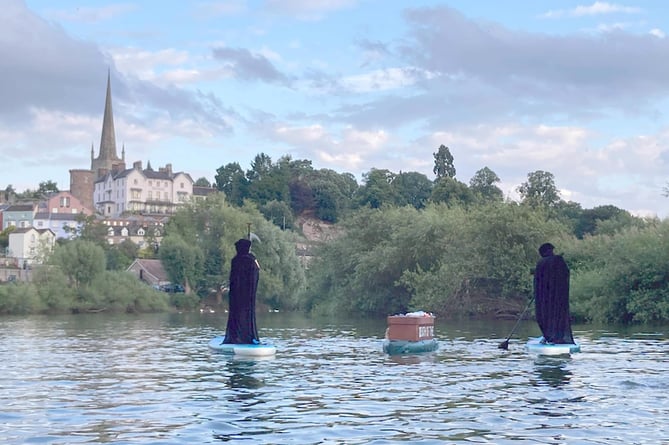SOUTH Herefordshire’s MP Jesse Norman has been urged to ’do the right thing’ for the River Wye after he and other Conservative colleagues voted against a move to prevent raw sewage being discharged into rivers.
Last week, MPs including Mr Norman and fellow Herefordshire MP Bill Wiggin voted against a proposal to the Environmental Bill from the House of Lords to place legal duties on UK water companies to reduce the discharge of raw sewage into rivers.
The proposal was defeated by 265 votes to 202, with MPs claiming that safeguards are already contained in the bill and that new measures would cost millions.
Conservative MPs defended the Government following public outcry, saying that the move would "bankrupt" water companies unless taxpayers were asked to contribute.
But Mr Norman stressed that debate about the Bill is not over, and some key clauses are still being discussed and negotiated.
He said: "I and other Wye valley MPs have been pressing the Government separately for a long-term cross-border approach to clean up the river Wye in the Spending Review, which is taking place this week.
"The need to place stronger statutory safeguards on sewage is a further and wider related issue of great importance, to which we will return in Commons next week."
Independents for Herefordshire councillor Liz Harvey, deputy leader of Herefordshire Council, said: "How serious, pertinent and imperative to their constituencies must an issue be before these Tory Boys actually do the right thing by Herefordshire?"
Her Independents colleague Cllr Yolande Watson said both MPs "have engaged in high-level conversations with Herefordshire Council about what to do about the state of the river Wye and the urgent need to stop water companies from spewing millions of litres of untreated sewage into our rivers".
"How can residents trust what their MP say when their words do not follow their actions (i.e. their voting)?" she said.
Hereford and South Herefordshire Labour Party Tweeted: "Let’s have a guess how @Jesse_Norman voted on the issue of sewage being dumped in our rivers! No doubt he’ll say he’s waiting for a better deal, well the rivers can’t wait!"
Both Herefordshire MPs were present in the Commons during a debate on the proposed amendments to the Environment Bill last Wednesday, and did vote on other amendments, though neither spoke during the debate.
The amendment, which would have placed a duty on water companies "to take all reasonable steps to ensure untreated sewage is not discharged from storm overflows", stemmed from a Private Member’s Bill which Mr Dunne had earlier introduced to Parliament.
Rivers should not be treated as "the cesspit of humanity", he said ahead of the vote. "The completely unacceptable spillage of sewage into rivers is routine. It has to stop.
"There should be a primary legislative duty on water companies, to persuade them to treat this issue with sufficient seriousness."
But he acknowledged that costs of improving the country’s sewage treatment network "are going to be significant, ?possibly huge".
Mr Norman and Mr Wiggin, along with Fay Jones, Conservative MP for Brecon and Radnorshire, and Mark Harper, Tory MP for the Forest of Dean, put forward a bid to the Treasury at the end of September for a £10-£15 million "three-year integrated spending package specifically focused on cleaning up the Wye".
Ms Jones also sat out the vote, while Mr Harper voted to reject the amendment.
Ms Jones said: "In eliminating storm overflows, we are talking about transforming a system which has operated since the Victorian era, the preliminary cost of which is estimated to be anywhere between £150 billion and £650 billion. This cost would ultimately have been paid for by the taxpayer through our water bills.
"The Government’s view was that it would have been irresponsible to have inserted this section in the Bill given that it was not backed by a detailed plan and thorough impact assessment."
There is currently a ban on construction along the River Lugg catchment area in the county because of the levels of phosphates in the river, which Mr Wiggin has previously sought to overcome.
Water pollution in the county also arises from farm runoff, particularly from the many intensive poultry units in the area.




